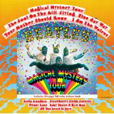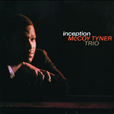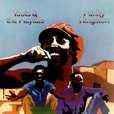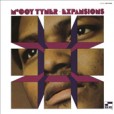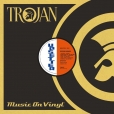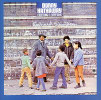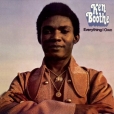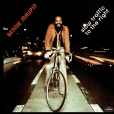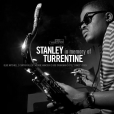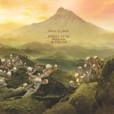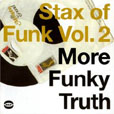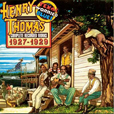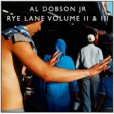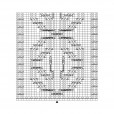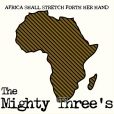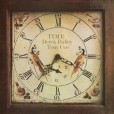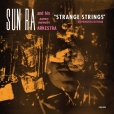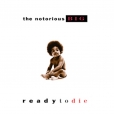Your basket is empty

That’s Maupin on Bitches Brew, and Lee Morgan’s Live At The Lighthouse, and Head Hunters. He co-wrote Chameleon. From 1977, this is killer fusion in the same dazzling tradition — as confirmed by transformative readings of two classics by the Mwandishi sextet, Quasar and Water Torture, from the LP Crossings. We’re in the same neck of the woods as Eddie Henderson’s two deadly Blue Notes around this time — Sunburst and Heritage — and the great trumpeter is here. Also Patrice Rushen, who plays a blinder: check her out on the opener. Pat Gleeson, who introduced Herbie to synths, Head Hunters mainstay Paul Jackson, Blackbyrd McKnight, from Flood and Man-Child…
By themselves on the first record; for the second, joined by Evan Parker and Byron Wallen, harpist Tori Handsley and tabla player Sarathy Korwar, and drummer Yussef Dayes. Both sessions were recorded completely live, straight to tape, consolidating the ‘incandescent immediacy’ of the playing. The duo’s ‘soulful tenor sax sermons plus earthily funky drumming, fusing jazz, hip-hop and grime… winningly mix dark, classic Coltrane raptures, infectious hook-rooted rockers and Sonny Rollins-like calypsos. The larger group sets up thrilling rhythm textures merged from Parker’s seamless soprano lines and a chatter of snare drums and tablas; there are atmospheric guitar-like harp figures, and dramatically spontaneous two-tenor tussles’ (The Guardian).
‘CD of the year so far’ (London Jazz News).
Multi-reedist Tony Coe was born in 1934, four years after guitarist Derek Bailey. He cut his teeth as a career jazzman with Humphrey Lyttleton, before an extended stint with the Kenny Clarke/Francy Boland Big Band. On this rare 1979 duo outing, he sticks to clarinet. And though that instrument has an illustrious jazz pedigree, Coe’s playing here is something else.
It’s worth noting that the clarinettist has also played under the baton of arch-modernist Pierre Boulez, the kind of composer Derek Bailey enjoyed taking to task in his book Improvisation. You might think the Frenchman’s uncompromising serialism and the free playing Bailey defended with such passion all his life would have little in common, yet both men were hugely influenced by Anton Webern. It’s an influence you can hear right through Bailey’s career in his obsessive exploration of tight parcels of registrally-fixed pitches, notably those trademark ringing harmonics. Meanwhile, Coe’s meandering semitones and sinuous arabesques here recall both Boulez’s clarinet writing in Domaines, and the harmonic world of Boulez’s own teacher Olivier Messiaen.
Still, no traditional classical musical notation could ever render the extraordinary rhythmic subtlety and timbral complexity of this music. It’s at one and the same time dazzlingly virtuosic — Coe and Bailey are on stellar form throughout, and have enough sense to, yes, accompany each other where needs be — and supremely lyrical and spacious.
An absolute delight.
A triumphant edition of one of the most implacable, mysterious, rumbustiously creative albums in the entire Saturn catalogue.
The three tracks comprising the original LP are remastered from tape, doing away with the distortion which has dogged all previous issues. The four additional recordings here are previously unreleased, including two more from the first sessions, and a live performance circa 1967, with Ra leading strange strings on clavinet, and finally a demonstration by Ra of the ‘plaintive’ expressiveness of the Ukrainian bandura.
With excellent notes, including a new essay by David Toop.
‘When I say space music, I’m dealing with the void, because that is of space, too; but I’m dealing with the outer void rather than the inner void, because somehow man is trapped into playing roles into the haven or heaven of the inner void… the word space is a synonym for a multi-dimension of different things other than what people might at present think it means. So I leave the word space open, like space is supposed to be.’
‘If you play it right time, you’re wrong,’ Sun Ra once instructed his Arkestra. ‘I told you, it’s designed for sound.’
From the original Saturn Research publicity flyer for Strange Strings: ‘Too many people are following the past. In this new space age this is dangerous… It is no accident that those who die are said to have passed since those who have PASSED are PAST.’
Magnificent Wolof drum music, performed by an extended griot family in the mystical setting of Lac Rose, outside Dakar.
Doudou Ndiaye Rose — who died in 2015 — is a key drummer in the musical history of the world. He developed a system of five hundred original drumming patterns, ancient and new. Amongst the modern rhythms here is Bench Mi — ‘under the Baobab tree,’ a spot where where problems get solved. Also Hibar Yi — ‘passing on information’ — the theme-tune of Senegalese TV national news for decades — and Les Rosettes, the signature rhythm of Senegal’s first ever all-female percussion group, convened by Doudou, and named after his grandmother.
These original compositions sit alongside important traditional rhythms, familiar to every Sabar player, such as Farwu Jar ( a courtship game sometimes resulting in a wedding), Ceebu Jin (also the name of the national dish of fish and rice), and Gumbé, often played after a successful harvest.
Recorded in joyful single takes, over seven consecutive days in February 2020, with no overdubs, mastered by Rashad Becker, the music is deep and thrilling, polyrhythmic to the bone, with a complex, pointillistic intensity at times evoking Jeff Mills in full flight.
Snoopy is hard to follow up. The same brilliant musicality is lavished on Orange — a combination of unmistakably original, skittering drum programming, startlingly fresh instrumental interjections, creepily invocatory voices, and dubwise treatments — giddily imbued with the dark arts of ritual and seance. But Orange is more gripping, focussed and urgent, more intense and ambitious. Next level.
Its first quarter presents a trio of forays in suspense.
Bassline squares up like an epic psych-funk grinder, with a moody guitar line traversed by ticking drum patterns and faint electric crackle. In no time the guitar is staggering and stammering under the duress of echo and distortion, and over-run with percussive electronics and the first of the voices massing in the music’s head. The mood has quickly become more trepidatious. We’re deeper underground; it’s gloomier, wetter.
Shred propulsively ratchets up the tension and menace. Glazily tentative xylophone is played against slashing, nervy cello. The voices are more strangulated and sick now. Flutes and chimes evoke the same kind of beautiful, contaminated efflorescence which is pictured on the LP’s front cover.
Voice Of The Spider makes easier progress across this cavernous, shadowy, dripping terrain, with funky pads and Nasty, eighties, No Wave electric bass; woozy chimes, non-plussed keys, singing-in-tongues.
Pink Mist marks an arrival, or unbottling, with annunciatory church-organ and choral voices from the off, and a newly relaxed, head-nodding kosmische rhythm.
Mandarin is a short, beat-less and voice-free interlude for piano and bass. It’s reflective and nostalgic, ambivalent and inconclusive, with a lovely snatch of melody. A bridge half-way.
Would You Like A Vampire is a triumphant, mesmerizing go at New Folk, with strummed acoustic guitar, descant song, and jazzily restless drum programming (including a tasty bass-bin trembler). Amazingly, Conrad Standish is joined at the mic by none other than Bridget St John. Together they sing ‘Earth is Paradise’ so repeatedly and tremulously — and the song is cut off so abruptly at the end — it seems as if the verb is teetering on the past tense, and hymn fading into valediction and catastrophe.
In the same line of thought, Storm Rips Banana Tree begins idyllically enough, with a CS-&-Kreme-style raga… before something like an immense, obliterative drill starts up. Harpsichord and organ — by James Rushford — and flutes, and clapping, distant chanting and insectile percussion steadily leaven the dread, till finally all that is left is lapping water.
It’s an epic, deeply immersive, compelling, thought-provoking, twenty-minute finale… the coup de grâce.
